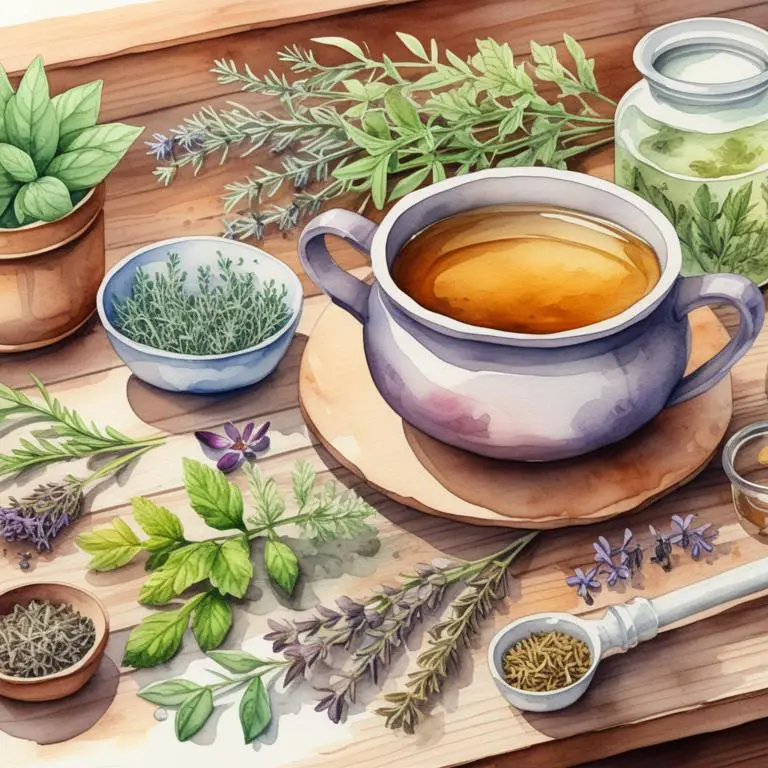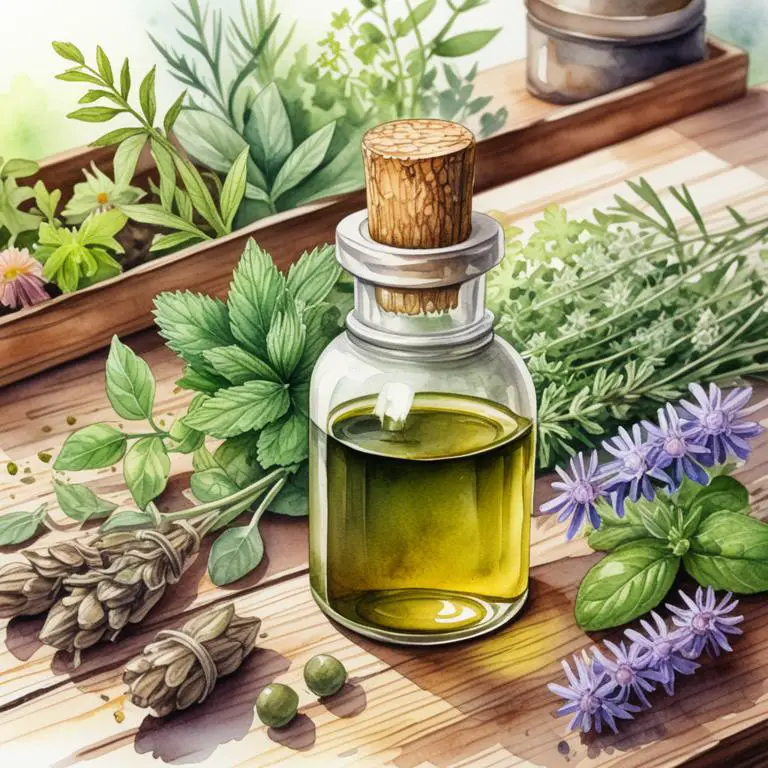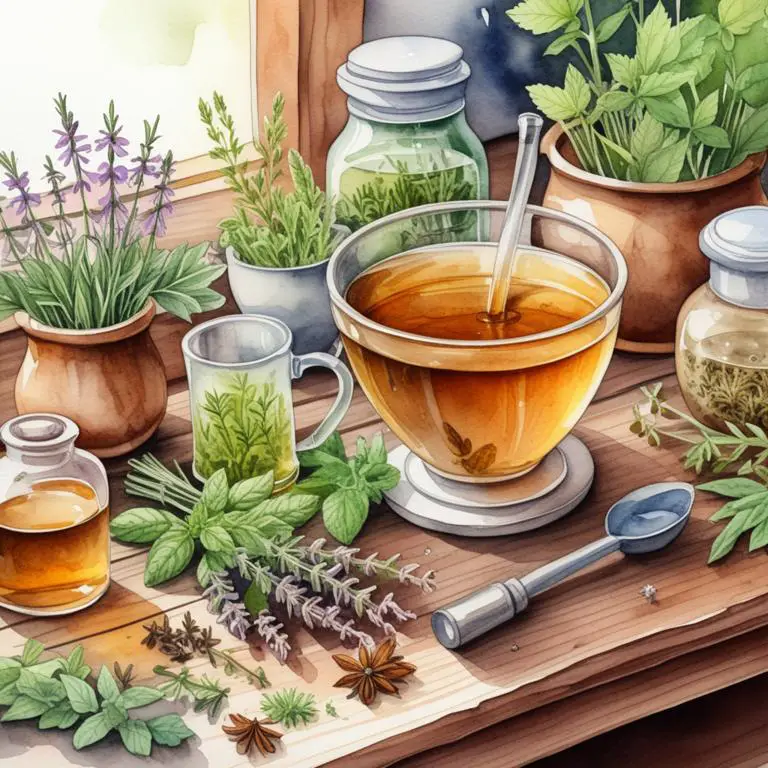Updated: Dec 1, 2024
Edema: Causes, Symptoms, and Herbal Preparations
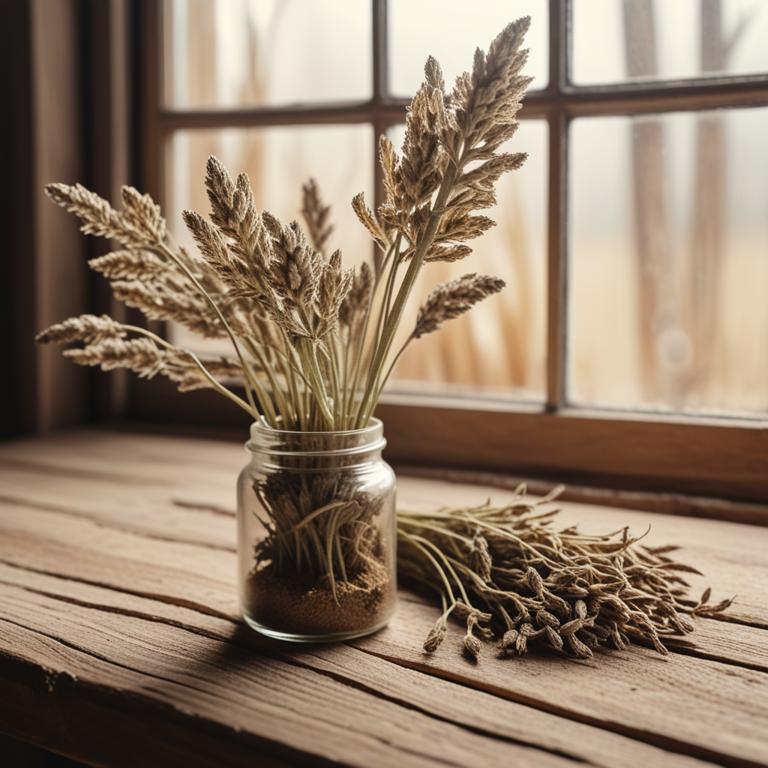
Edema is a condition where your body holds too much fluid, causing your skin to swell.
It can be painful and uncomfortable, making everyday activities a challenge. You might experience swelling in your feet, ankles, hands, or other parts of your body. Edema can be a result of various factors, such as poor circulation, kidney problems, or hormonal imbalances. It can also be triggered by certain medications, injuries, or diseases like heart or liver conditions.
To combat edema, some people turn to herbal remedies. Herbs like dandelion root and juniper berries have natural diuretic properties that help remove excess fluid from the body. Other herbs like ginger and turmeric reduce inflammation and promote blood circulation. You can consume these herbs as teas, capsules, or tinctures. Drinking dandelion root tea, for example, can help stimulate urine production and flush out the excess fluid.
Additionally, you can try ginger tea or turmeric latte to soothe your body and improve circulation.
Table of Contents
What are the causes that lead to edema?
The main causes of edema are related to problems with the body's ability to manage fluids.
One of the main causes is heart failure, where the heart is not pumping enough blood to return to the body's circulation, leading to a buildup of fluid in the tissues. This can be due to conditions like coronary artery disease, high blood pressure, or heart valve problems. Another cause is kidney disease, specifically kidney failure or end-stage renal disease, where the kidneys are not able to filter waste and excess fluids from the blood properly. This leads to fluid retention in the body, causing swelling.
Liver disease is also a cause of edema, as the liver helps regulate the balance of fluids in the body. When the liver is damaged, it can't perform this function, leading to fluid buildup in the tissues. Conditions like cirrhosis, liver scarring, and hepatitis can all contribute to liver disease. Lastly, nephrotic syndrome is a condition where the kidneys are damaged, causing them to excrete large amounts of protein in the urine.
This leads to low levels of albumin in the blood, which helps keep fluid in the bloodstream from leaking into the tissues, causing edema.
What advantages are there to using herbs for edema relief?
Using herbs for edema can be very helpful.
One of the main benefits is that they can reduce swelling and inflammation. This can make it easier to move around and perform daily activities, which can be a big relief for people who are experiencing edema.
Herbs can also help to improve circulation, which means that the body can get rid of excess fluids and reduce swelling more efficiently. Additionally, herbs can have anti-oxidant properties, which can help to protect the body from damage caused by free radicals and reduce inflammation. Some herbs can even help to improve the function of the lymphatic system, which is responsible for removing excess fluids and waste from the body.
By using herbs for edema, people may be able to reduce their dependence on medications and other treatments, and improve their overall quality of life.
What are the main herbal remedies for edema?
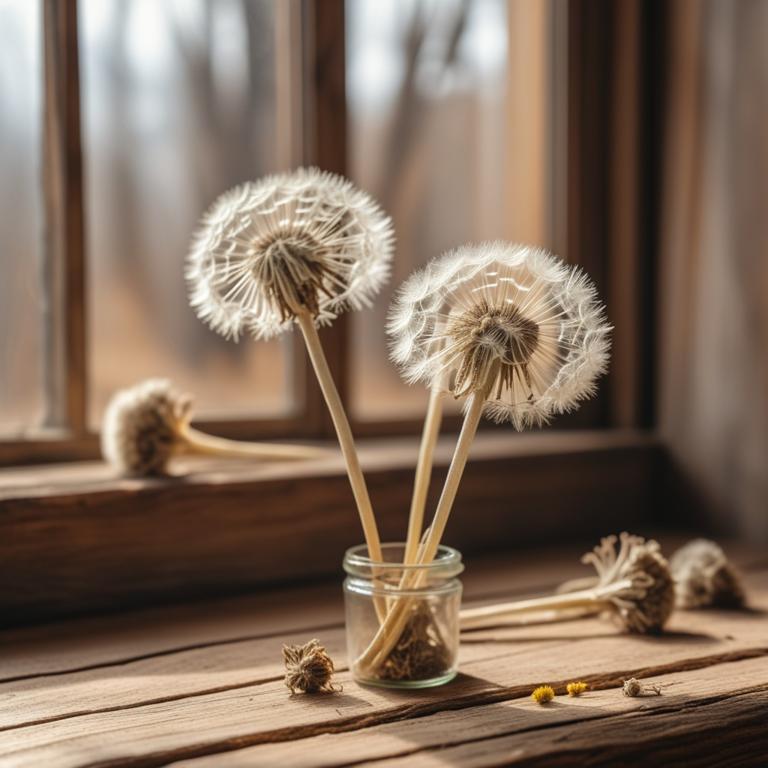
Herbs have been used for centuries to help with edema, a condition where fluid builds up in the body, causing swelling.
Taraxacum officinale, also known as dandelion, is a popular herb for this issue. It has diuretic properties, which means it helps the body get rid of excess water and salt. This reduces swelling and makes it easier to breathe. Glycyrrhiza glabra, or licorice root, is another herb used to treat edema. It helps lower blood pressure and reduces inflammation, which can contribute to swelling. Licorice root also has anti-oxidant properties, which protect the body from damage caused by free radicals. This can help prevent edema from getting worse. Cichorium intybus, or chicory, is a herb that has been used to treat a range of health issues, including edema.
It has anti-inflammatory properties, which can help reduce swelling and pain. Chicory also has diuretic properties, which helps the body get rid of excess water. Curcuma longa, or turmeric, is a herb that has been used to treat inflammation for centuries. It has anti-inflammatory properties, which can help reduce swelling and pain. Turmeric also has antioxidant properties, which protect the body from damage caused by free radicals. Urtica dioica, or stinging nettle, is a herb that has been used to treat a range of health issues, including edema. It has anti-inflammatory properties, which can help reduce swelling and pain. Urtica dioica also has diuretic properties, which helps the body get rid of excess water. These herbs can be used in different ways, including drinking tea made from the dried roots and leaves, taking capsules or tinctures, or applying them topically as a cream or oil.
It's always a good idea to talk to a healthcare professional before using any new herbs, especially if you're already taking medication.
What are the most popular herbal treatments for edema?
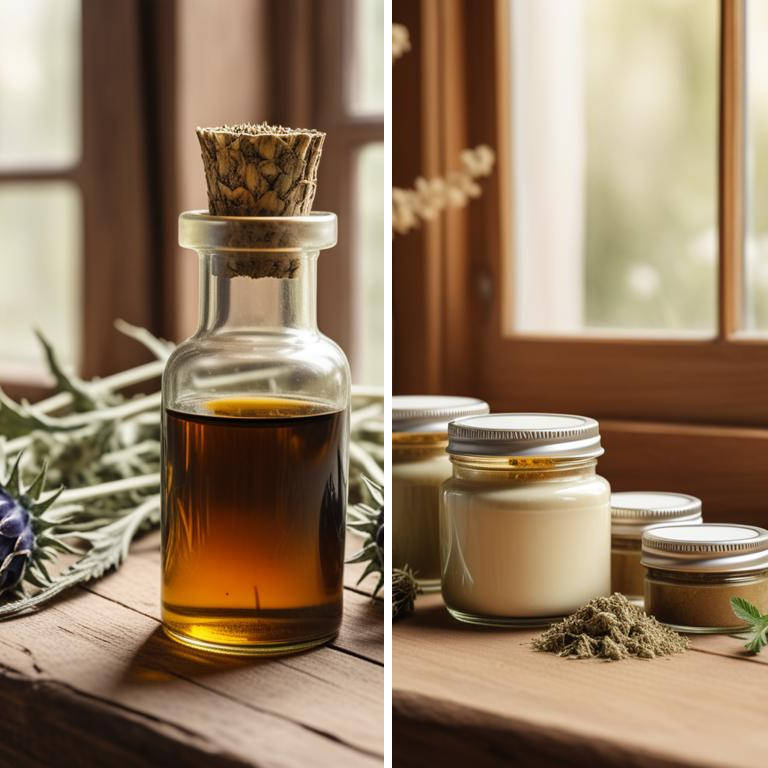
Herbal preparations are great for treating edema, which is swelling caused by fluid buildup in the body.
One way to use herbs is by making a decoction, which is a strong tea made by boiling herbs in water for a long time. Decoctions are good for edema because they can help reduce swelling and improve circulation. For example, a decoction of dandelion root can help remove excess water from the body. Another way to use herbs is by making a tincture, which is a liquid extract of herbs that can be taken by mouth or applied topically. Tinctures are good for edema because they can help reduce inflammation and improve circulation. For example, a tincture of horse chestnut can help reduce swelling and improve blood flow to the affected area. Infusions are also helpful in treating edema.
They are made by steeping herbs in hot water, similar to making tea. Infusions are gentle and can be used for sensitive skin. For example, an infusion of chamomile can help calm the skin and reduce inflammation. In addition to internal preparations, herbal creams and ointments can also be used to treat edema. These topical preparations can be applied directly to the affected area to reduce swelling and improve circulation. For example, a cream or ointment made with arnica can help reduce inflammation and improve blood flow. When using herbal preparations for edema, it's essential to choose herbs that are known to have anti-inflammatory and diuretic properties, such as dandelion, horse chestnut, and chamomile.
These herbs can help reduce swelling, improve circulation, and promote the removal of excess water from the body.
Additional Resources:
What herbs should you refrain from using if you have edema?
If you have edema, it's best to steer clear of certain herbs that can make the swelling worse.
Digitalis purpurea, also known as foxglove, can be particularly problematic. It's often used to treat heart conditions, but it can also increase the risk of edema. This is because it affects the body's balance of fluids and can lead to water retention. Another herb to avoid is Lithospermum officinale, also known as glandweed. It's sometimes used to treat edema, but it can also cause it in some people. This is due to its diuretic properties, which can lead to an imbalance in the body's fluid levels.
Aconitum napellus, or monk's hood, is a highly toxic herb that's best avoided altogether. While it's sometimes used to treat pain and inflammation, it can also cause a range of other problems, including edema. This is because it can affect the body's blood vessels and lead to fluid buildup. Astragalus membranaceus, or astragalus, is sometimes used to boost the immune system, but it can also cause edema in some people. This is due to its ability to affect the body's fluid balance and lead to water retention. Finally, Angelica sinensis, or dong quai, is a popular herb for treating menstrual problems, but it can also cause edema in some individuals.
This is because it can affect the body's hormone balance and lead to fluid retention.
FAQ
Are there any specific herbs that can prevent edema?
Some herbs may help prevent edema.
Ginger, for example, has anti-inflammatory properties that can reduce swelling. Turmeric, another herb, contains curcumin, which helps to lower fluid buildup in the body. These herbs can be consumed as tea or added to food to potentially alleviate edema symptoms.
They may help to reduce swelling and discomfort.
Is it safe to use herbal remedies for edema during pregnancy?
Using herbal remedies for edema during pregnancy can be a concern.
Some herbs, like dandelion and juniper, may help reduce swelling, but others, like foxglove, can be toxic to the mother and baby.
It's best to be cautious and only use herbs that have been studied and proven safe for pregnant women.
Are there any herbs that can reduce the frequency of edema?
Some herbs like dandelion root and celery seed may help reduce fluid retention and edema. Dandelion root is believed to improve kidney function and promote water elimination, while celery seed contains a compound called apiol that may help break down excess fluids in the body, potentially alleviating edema symptoms.

